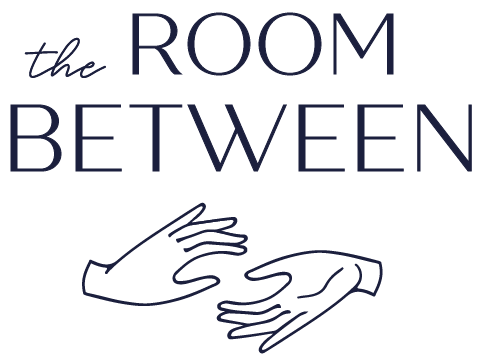We believe it’s not about symptoms, it’s about people and their experiences




Our clients
All sessions are delivered via Zoom by HCPC-registered Clinical Psychologists, allowing us to work with clients across the UK and internationally. Unfortunately, we aren’t able to work with citizens of North America or Canada.
Types of session



Relationship therapy
You don’t need to be currently in an intimate relationship to benefit from relationship therapy. We work with you to understand past experiences and the templates they’ve created. We’ll explore how you apply those to current relationships and whether these templates are still helpful.
The understanding gained from this therapy can help you develop the realtionships you want with yourself and others.
Trauma therapy
- Creating a sense of safety and stability to improve current relationships
- Processing the trauma either through talking therapy or EMDR
- Integrating what you’ve learned into your daily life
It’s not a linear process and there’s no need to cover all three phases – for some, improving their current relationships is enough.
Maintaining that feeling of safety is the top priority, and we’ll never push you to open up or discuss more than you’re comfortable with. If it becomes too much, we’ll help you put the brakes on.




Our clients
All sessions are delivered via Zoom by HCPC-registered Clinical Psychologists, allowing us to work with clients across the UK and internationally. Unfortunately, we aren’t able to work with citizens of North America or Canada.
Types of session
Relationship therapy
You don’t need to be currently in an intimate relationship to benefit from relationship therapy. We work with you to understand past experiences and the templates they’ve created. We’ll explore how you apply those to current relationships and whether these templates are still helpful.
The understanding gained from this therapy can help you develop the realtionships you want with yourself and others.
Trauma therapy
- Creating a sense of safety and stability to improve current relationships
- Processing the trauma either through talking therapy or EMDR
- Integrating what you’ve learned into your daily life
It’s not a linear process and there’s no need to cover all three phases – for some, improving their current relationships is enough.
Maintaining that feeling of safety is the top priority, and we’ll never push you to open up or discuss more than you’re comfortable with. If it becomes too much, we’ll help you put the brakes on.


Working with sexually compulsive behaviours
There’s a common misconception that sexually compulsive behaviours are all about pleasure, but they often develop as a way to help people cope with the pain from past trauma.
Our sessions create a shame-free space to explore your relationship with sex. It isn’t about judgement. It isn’t necessarily about unpicking the why behind the coping mechanism if that’s not something that feels comfortable.
We’ll help you define and develop the relationship with sex, your emotions and significant others that you want, that represents who you are today.
We believe it’s not about symptoms, it’s about people and their experiences. Rather than questionnaires and diagnoses, our sessions provide a secure base from which people can explore themselves and their experiences.
What to expect
There are three steps to getting started with The Room Between:

Email us or book an initial consultation via the website at a time that works for you.
2: Free initial consultation
In this quick 10-15 minute call, we’ll ask you to tell us a bit about why you’re looking for therapy now and where you hope it may take you. It’s a chance to ask us any questions you might have. We’ll make sure we have the right expertise to help and advise on which team member might be the best fit.
Once you’ve decided you’d like to work with us, we’ll book in your first session. All sessions are via Zoom and will last 50-60 minutes.
In the first couple of sessions, we’ll talk about what you’re experiencing, what you’re looking for, and how we’ll work together. With your therapist, you’ll agree on how frequently you’d like to have sessions and find a convenient regular time.
A strong relationship with your therapist is important for good results, so these first few sessions are also an opportunity for you to get to know each other and see if it feels like a good fit.
Fees
- Individual therapy: £130
- Couple therapy: £150
- Group/multiple/family therapy: £160
- Professional supervision: £100
Dr Elizabeth Haycock
- Individual therapy: £120
- Professional supervision: £100
Dr Haycock doesn’t offer couples or group therapy and is not currently accepting Bupa referrals.
For training or corporate consultations, please get in touch to tell us more about what you’re looking for and we’ll be happy to provide a quote.
We accept payment by electronic bank transfer. You will be invoiced before each session, and payment is due 48 hours before your session in order to hold the time for you.
Health Insurance
The first step is to get in touch with your insurance company and check your policy covers sessions with a Clinical Psychologist. If it does, they’ll provide you with a pre-authorisation code.
Once you let us know this code and your membership details, we can invoice your insurer directly after each session.
You’ll be responsible for covering any excess and keeping track of the number of sessions you are covered for and have received.
Please note, we’re no longer able to accept AXA or Vitalty insurance, and Dr Haycock isn’t currently accepting Bupa referrals.
Cancellation policy
If you cancel a session with less than 48 hours notice, you will be charged the full fee. Insurance companies won’t cover cancelled or rescheduled sessions, so you will be personally liable to pay the full fee listed above
Email us or book an initial consultation via the website at a time that works for you.
Jane Major
CLINICAL PSYCHOLOGIST

